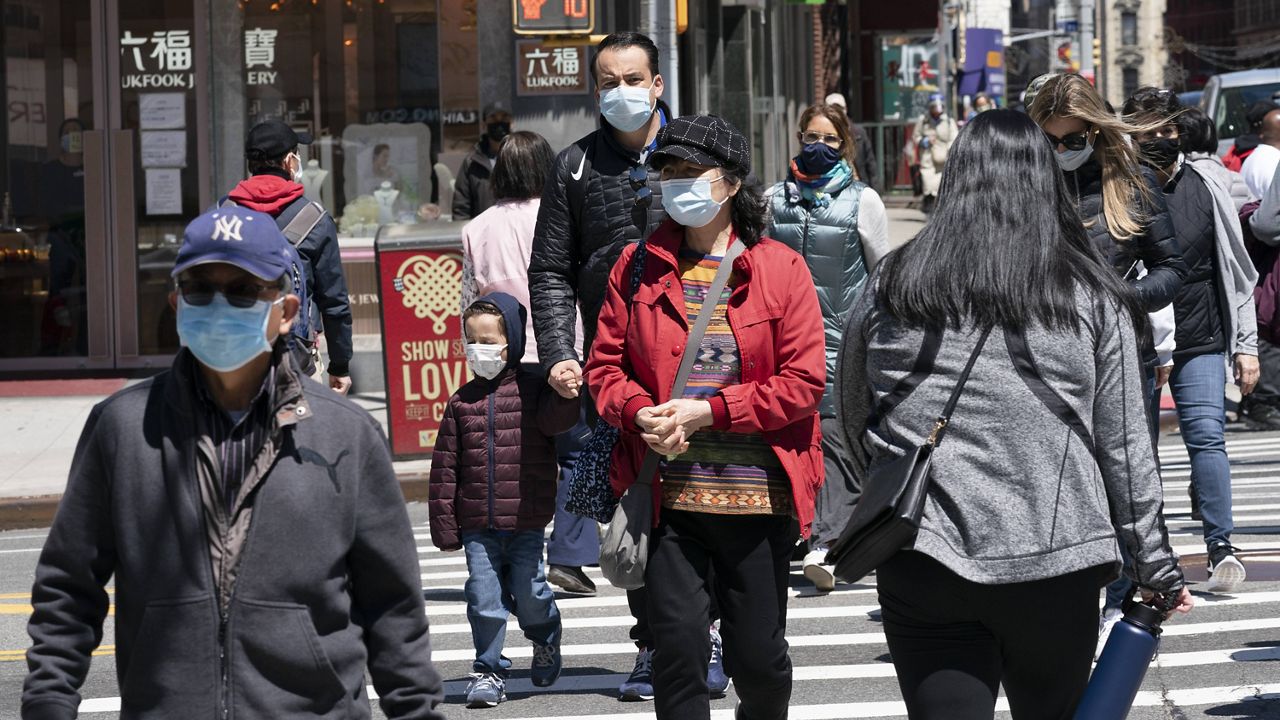Most Americans have dreamt for more than a year about the day the COVID-19 pandemic would mostly be in the rearview mirror and they could return to their normal lives.
What You Need To Know
- Some people might be dreading the early days of post-pandemic life, while unexpected psychological hurdles might await others
- Anxiety, mental health experts say, will be the most common psychological challenge people will face as they take their first steps toward normalcy
- Some people, for example, will feel uncomfortable being in crowds again, returning to offices or schools, not wearing masks or acclimating to a new routine
- Anxiety can manifest in a number of ways, including depression, panic attacks, compulsive behavior such as substance abuse or overeating, or avoidance, including quitting a job
Some, however, might be dreading the early days of post-pandemic life, while unexpected psychological hurdles might await others.
While the U.S. is still averaging around 50,000 new infections a day, states, spurred in part by vaccinations, are increasingly dropping the public safety measures residents were asked to follow since last spring.
Anxiety, mental health experts say, will be the most common psychological challenge people will face as they take their first steps toward normalcy. Some people, for example, will feel uncomfortable being in crowds again, returning to offices or schools, not wearing masks or acclimating to a new routine, even if it is a lot like their pre-pandemic one.
Readjusting will be a bigger struggle for some than others.
“I think many of us ... will drive over a speed bump, and this will be an irritant or there'll be a recalibration,” said Jim Jackson, director of behavioral health at Vanderbilt University Medical Center’s ICU Recovery Center. “But for some people, it'll be more than that. It'll be a mountain that is too high to climb.”
Mental health professionals say such anxiety can manifest in a number of ways, including depression, panic attacks, compulsive behavior such as substance abuse or overeating, or avoidance, including quitting a job.
“I think for some people, this anxiety is and will be disabling,” Jackson said.
Lynn Bufka, senior director of practice transformation and quality at the American Psychological Association, recommended that anyone who is feeling uneasy about returning to their old life should take it slowly.
For example, that might mean spending time with friends only outdoors at first or keeping social circles small, she said.
“Whenever I'm working with anybody with anxiety, my ultimate goal is for the person to make choices themselves about what they want to do, and, as we often say in treatment, not to have the anxiety making the decision,” Bufka said.
Jackson said people who are feeling anxiety about returning to their workplaces should let their bosses know what they are going through, adding that companies should try their best to accommodate those who are struggling.
“How can we be attending to the individual needs of a worker who's terrified at the thought of returning to work?” he said. “How can we avoid one-size-fits-all solutions and really honor the mental health of people?”
Any change in routine can create anxiety, mental health experts said. The vast majority of Americans adapted to the pandemic last year, and some have gotten used to the new way. Just because they’ll be returning to a lifestyle they’re familiar with doesn’t mean some won’t experience challenges readjusting, Bufka said.
Bufka also said that people need to ask themselves why they are feeling anxious about the changes. Some, she said, might have actually liked aspects of pandemic life — such as working from home or having an excuse not to be social.
“I encourage people to figure out, ‘Is this my anxiety talking, or is this really my preference? I really prefer one-on-one interactions versus large parties,’” she said. “And if that's the case, try to structure your social life so it's more of a one-on-one interaction.”
Also, after months of health officials stressing the importance of thoroughly and regularly washing hands, it would not be surprising if the pandemic produces a new generation of germophobes. There is a point when someone can cross the line from healthy hygiene to obsessive compulsive disorder. Jackson said that COVID-19 anxieties, including about germs, “prey on people with preexisting emotional vulnerabilities” and “a proclivity to be anxious.” He said changes in behavior can be concerning.
“For some people, that change could be from having a reasonable amount of anxiety ... to a severe amount,” he said.
Meanwhile, more and more children are returning to classrooms for the first time in 14 months.
“Children are incredibly flexible and adaptable, so we expect that they'll get back into this,” Bufka said. “ … But there's going to be some kids for whom virtual life actually was really good, and so transitioning back into seeing people on a regular basis is going to be a very interesting challenge.”
Parents should pay extra attention to their kids and talk to them about what they’re experiencing, Bufka said.
Jackson said parents shouldn’t assume their children will feel the same anxieties — or lack thereof — about returning to school as they might be. He said worse grades or sudden discipline problems could be “red flags” that kids are having a hard time settling in again.



